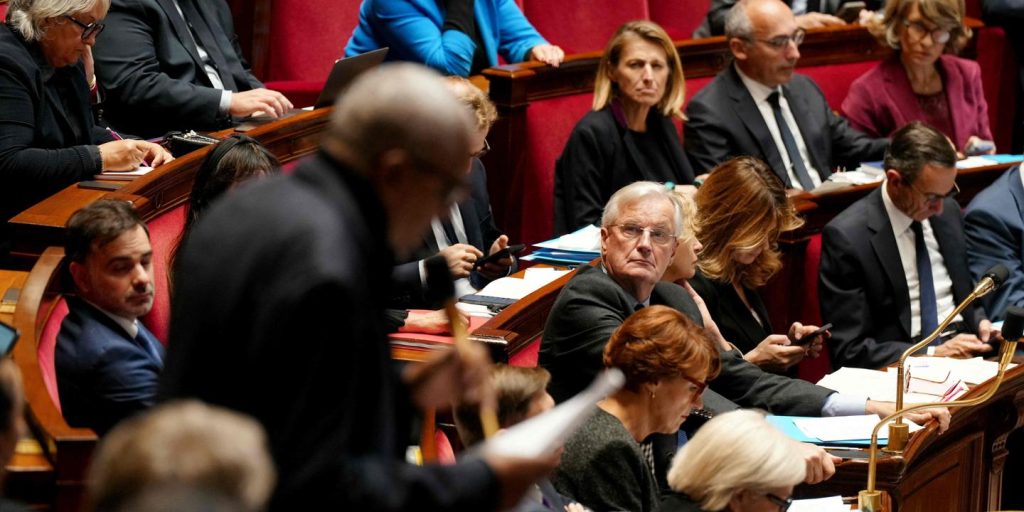Aurélie Trouvé, the new president of the Economic Affairs Committee of the Assembly (LFI), believes that the spending cuts requested by Barnier will have a “recessive effect” on the economy. During an interview on France Inter, Trouvé criticized the €40 billion reduction in spending planned in the 2025 budget, stating that it will decrease demand, employment, and ultimately public revenues. She described Michel Barnier’s proposed solution to address the deficit and debt in public accounts as a “disaster”, emphasizing that a collapse in public spending will directly impact people’s daily lives. Trouvé believes that the problem lies not in public spending, but rather in the decrease in revenues in recent years. She advocates for seeking funds where they are, from the wealthiest individuals, ultra-rich, and multinational corporations.
While Michel Barnier has suggested imposing a special contribution on the wealthiest individuals and companies, Trouvé noted that this measure would only be temporary, lasting for one or two years according to the government’s intentions. In response to her recent election as the head of the Economic Affairs Committee of the Assembly, Trouvé expressed her belief that there is no common ground between the Macronist camp and Les Républicains, describing their alliance as merely a temporary arrangement to prevent the New Popular Front from governing. She also addressed the lack of agreement within the left-wing coalition to support Jérôme Guedj for the presidency of the Social Affairs Committee, pointing out that Guedj, a socialist, was not endorsed by the New Popular Front during the legislative elections.
Trouvé’s emphasis on the negative impact of spending cuts on the economy reflects her concerns about the planned austerity measures and their potential consequences for public finances. She calls for a focus on increasing revenues rather than reducing spending, particularly by imposing taxes on the wealthiest members of society. By highlighting the temporary nature of proposed measures to target the wealthy for additional contributions, Trouvé raises questions about the effectiveness and sustainability of such strategies in addressing long-term economic challenges. Additionally, Trouvé’s analysis of the political dynamics within the Assembly sheds light on the complex relationships between different factions and the challenges of forming cohesive alliances to advance specific policy agendas.
The tensions between different political parties and ideological factions, as illustrated by Trouvé’s remarks on the lack of consensus between Macronists and Les Républicains, underscore the challenges of building consensus and enacting meaningful change in the context of diverse political perspectives and interests. Trouvé’s election as the head of the Economic Affairs Committee represents a significant development in the political landscape, signaling the divergent views and priorities within the Assembly. The failure of the left-wing coalition to support their candidate for the presidency of the Social Affairs Committee highlights the internal divisions and competing interests that can hinder the advancement of shared policy goals. Trouvé’s acknowledgment of these challenges reflects a realistic assessment of the complexities involved in navigating political dynamics and advancing a cohesive agenda.















